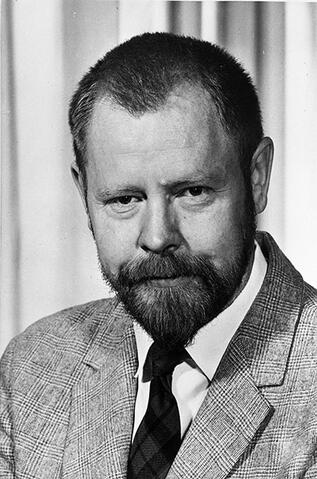
Área de título y declaración de responsabilidad
Título apropiado
Art McKay - Portrait
Tipo general de material
- Graphic material
Título paralelo
Otra información de título
Título declaración de responsabilidad
Título notas
Nivel de descripción
Item
Institución archivística
Código de referencia
Área de edición
Declaración de edición
Declaración de responsabilidad de edición
Área de detalles específicos de la clase de material
Mención de la escala (cartográfica)
Mención de proyección (cartográfica)
Mención de coordenadas (cartográfica)
Mención de la escala (arquitectónica)
Jurisdicción de emisión y denominación (filatélico)
Área de fechas de creación
Fecha(s)
-
Aug. 1964 (Criação)
Área de descripción física
Descripción física
1 photograph : b&w ; 18 x 12.5 cm
1 negative : b&w ; 12.5 x 10 cm
Área de series editoriales
Título apropiado de las series del editor
Títulos paralelos de serie editorial
Otra información de título de las series editoriales
Declaración de responsabilidad relativa a las series editoriales
Numeración dentro de la serie editorial
Nota en las series editoriales
Área de descripción del archivo
Nombre del productor
Historial de custodia
Alcance y contenido
Head and shoulders image of Art McKay, director, School of Art, Regina Campus.
Bio/Historical Note: Arthur Fortescue McKay, best known as Art McKay, was born in 1918 in Nipawin, Saskatchewan. His father was Joseph Fortescue McKay, a son of Angus McKay whose own grandfather was the younger John Richards McKay and whose grandmother was Harriet Ballenden. This and other ancestry would qualify McKay as an Anglo-Métis artist in Saskatchewan and in Canada. His mother, Georgina Agnes Newnham, was a daughter of another historical figure in Saskatchewan, the Anglican Bishop of Saskatchewan, Jervois Newnham. From an early age McKay drew landscape. His training in art began at the Provincial Institute of Technology and Art (now the Alberta University of the Arts) in Calgary (1946–1948), and later at the Académie de la Grande Chaumière in Paris (1949–1950), Columbia University in New York (1956–1957), and The Barnes Foundation in Merion, Pennsylvania (1956–1957). In 1952 McKay joined the staff of the Regina Art School (now the University of Regina). From 1951-1956 he was a lecturer in art at the University of Saskatchewan in Saskatoon. While there, McKay helped organize a series of Emma Lake Artists' Workshops in rural Saskatchewan. He became an associate professor in art there between 1956-1974, and director from 1964-1967. In 1978 he was an associate professor of art at the University of Regina. McKay received national and international attention as one of the painting group the Regina Five. The group's paintings were exhibited at the National Gallery of Canada in 1961 in a show titled "Five Painters from Regina". He was influenced in the 1960s by Barnett Newman, whom he, Ron Bloore, and Roy Kiyooka invited to the Emma Lake Artists' Workshop as guest artist in 1959. McKay's best known works are his scraped enamel circular and rectangular "mandalas", in which he uses relaxing, contemplative imagery to depict ideas related to Zen Buddhism. McKay was included in Clement Greenberg's 1964 "Post-Painterly Abstraction" exhibition. In the 1970s he continued to paint abstractions but also reintroduced the landscape in his work. In 1997, the MacKenzie Art Gallery mounted a national travelling exhibition, "Arthur F. McKay: A Critical Retrospective". His work is in many collections, both public and private, such as the National Gallery of Canada, Ottawa. McKay died in 2000 in Squamish, British Columbia.
Área de notas
Condiciones físicas
Origen del ingreso
Arreglo
Idioma del material
Escritura del material
Ubicación de los originales
Disponibilidad de otros formatos
Restricciones de acceso
There are no restrictions on access.
Condiciones de uso, reproducción, y publicación
Photographer: Unknown
Copyright holder: Unknown
Other terms: Responsibility regarding questions of copyright that may arise in the use of any images is assumed by the researcher.
Instrumentos de descripción
Materiales asociados
Acumulaciones
Location note
Vol. 81 / Neg. Vol. 12

